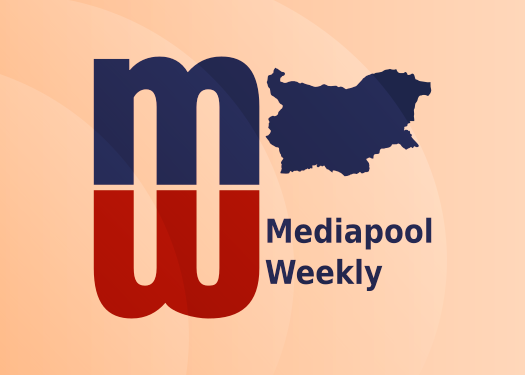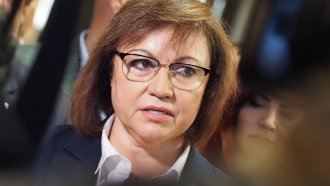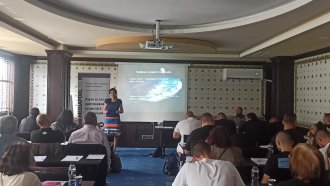Commentary:
The punchline of the three-term-Borissov-government joke

It has been a hectic and embarrassing week of realizations and revelations for Bulgarian PM Boyko Borissov. And a consecutive one at that.
The PM can’t seem to keep his fears of losing power and his dependencies to himself. Which arguably is a good thing for the public to know, but is becoming more and more embarrassing to watch. Less than half-a-year ago he admitted that he is fully dependent on his coalition partners, the composition of three far-right nationalist parties, the United Patriots, who cannot stand each other and whose inner disagreements and petty arguments are flooding the news cycle almost on a daily basis. Back then one of the leaders of the parties, which make up the so-called small coalition and then-vice PM Valeri Simeonov described the protesting parents of children with disabilities as “a bunch of laud-mouthed women with supposedly sick children.” The remarks created enormous backlash and a daily protest demanding Simeonov’s resignation. He eventually resigned, but it took him months. During this time, he declared on numerous occasions in public his refusal to resign. He even barely apologized and only under mounting please from his collogues to do so. When journalists approached the PM about what he intends to do, if he replied that his hands are tied as the stability of the government depends on the United Patriots good-willingness. In other words, the United Patriots may do (and demand) whatever they please, and the PM is bound to allow it, for the sake of keeping them happy so they don’t decide to flip on Borissov and his party.
This time though the dependency is, one, much more impactful and two, with real consequences to the democratic process.
Last week Parliament passed amendments (and mind you: in the middle of the night) making the ranked voting element in the Bulgarian voting system practically useless. The so-called preference vote gives power to the voter to rearrange the order of the candidates in a party or coalition’s ballot. The option is important, as the leading (or otherwise known as ‘electable’) positions in the ballot are often given to those candidates, who the party’s high-management deems appropriate. This often means that these candidates either are (and have pledged to be) loyal to the party’s leadership, or have been lobbied for. Since the option to vote for a specific candidate in the ballot was introduced in 2014 it has been widely used by voters. And instead of pushing the system forward – by expanding the option and giving voters the option to rank the whole list of candidates, instead of just being able to select one preferred candidate – GERB and the Movement for Rights and Freedoms managed to practically repeal it altogether.
The Movement for Rights and Freedoms has always been firmly against the preference vote. The party is extremely disciplined and is least inclined to have its ballots rearranged. The party is infamous for holding the key to the survival of a number of governments, regardless if they are officially part of it or in opposition. As its honorary leader, Ahmed Dogan put it back in 2009, “The whole power [in the country] in concentrated in me.” This is very much true to this day.
The weekend after the vote, Borissov’s Number-Two, Tsvetan Tsvetanov gave an interview admitting that the whole bill of amendments doing away with the preference vote is the Movement of Rights and Freedom’s. Tsvetanov also said that GERB had complied to vote them through because otherwise the Parliament would cease to function. Strong words. Either Parliament votes to repeal the preference vote or the government is out. And why? Because the Movement for Rights and Freedoms says so.
“We took the decision in the party internally … [we had to reach an agreement on the bill of amendments] in order to ensure the work of this parliament continues, and [ensure] the stability as well.”, Tsvetanov said.
Tsvetanov also shared what he told his fellow party members, which took many on a bitter trip down memory lane:
“Look, the decision we can take is this: do we want snap elections and political chaos in the country, and a parliamentary crisis or achieve a compromise.”
This appeal is almost word-for-word what then-PM Sergey Stanishev told Parliament before the vote for appointing media mogul and Movement for Rights and Freedoms MP Delian Peevski as head of the State Agency for National Security: “If we don’t approve Peevski the government will fall.” The scandalous appointment led to unprecedented daily nation-wide protests in the country, which lasted over a year. The similarity between the two utterances is uncanny.
It is obviously result of blackmail: it was then, and it is now. But what makes it even more terrifying is that Tsvetanov seems to think that pushing forward policies and legislation because someone threatened to destabilize the Parliament is justified. This government is obsessed with keeping itself in power at all costs. But it is also oblivious to the fact that holding on to power for the sake of being in power and pushing forward agendas for this purpose alone is fundamentally undemocratic.
The amendments and the way they were voted stirred public outrage and three days later GERB announced they would be moving to restore the preference option as it was. Mind you, this is after they have been through a final vote in Parliament. Which means that if President Roumen Radev doesn’t veto the bill (although, granted, he likely will), GERB could only fulfill this pledge if introduces a new set of amendments to the Elections Act. Which they’ve already submitted to the parliamentary clerk’s office.
It is never clear in such instances what does GERB fear more: Its backers in Parliament or the people’s anger. One this is sure though: In bouncing around from position to position with no other incentive but to please whoever is making you nervous at the given moment, and to speak about the stability of the government at the same time has gone from irrelevant to embarrassing to hilarious. Comedy comes in three’s as we know. And seeing as how this is GERB’s third term, we must be in the midst of the punchline.
In other news:
The Domuschiev brothers acquire NOVA TV for 185 million euro
The Domuschiev brothers acquire NOVA TV for 185 million euro

The infamous siblings Kiril and Georgi Domuschiev have bought the second largest private TV network in Bulgaria, NOVA TV, the current owner, the Swedish Modern Times Group has confirmed.
The Domuschiev brothers own many large businesses, including a football club, pharmaceutical factories and Navigation Maritime Bulgare (NAVIBULGAR), and are the concessionaires of the port of Burgas. Kiril is chairman of the largest Bulgarian employers’ organization, the Confederation of the Employers and Industrialists in Bulgaria.
Last year MTG tried to sell NOVA Broadcasting Group to the Peter Kelner, the wealthiest Czech businessman, owner of one of Bulgaria’s three mobile operators, Telenor Bulgaria, but the Commission for the Protection of Competition blocked the deal. The reasons put forward by the commission were rather controversial and superficial at best. This led many to speculate that the only reason for the commission to block the deal is essentially a way for the state to decide who gets to acquire NOVA TV along with a number of other online and print outlets and services, part of NBG.
The commission is yet to rule on the deal with the Domuschiv brothers (through their company Advance Media Group) but it is worth pointing out that the same concerns, as stated by the commission as reasons for blocking the deal with Kelner, are applicable in this case all the same. So, if the commission approves the deal it will be a very clear indication that the commission (and the state and government by extension) has the final say as to who gets to purchase – in this case – NBG. This will be yet another nail in the coffin of free press in Bulgaria with most of news outlets being owned by people and groups close to government and producing government-friendly news.
The largest parliamentary opposition leaves Parliament
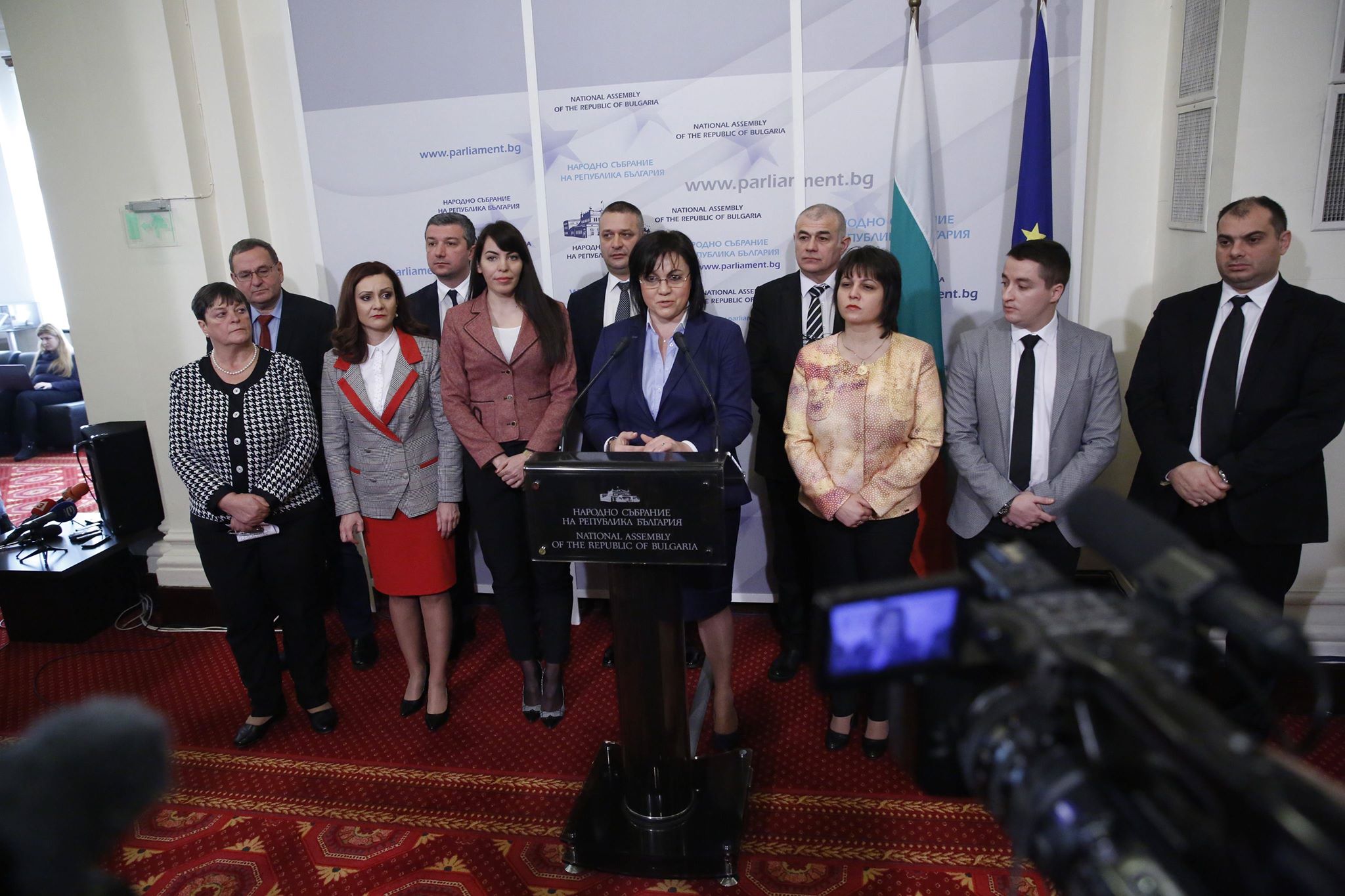
The largest parliamentary opposition, the Bulgarian Socialist Party declared it is leaving Parliament. 74 members of BSP votes in favor, 33 against and 3 abstained in the vote to leave Parliament, held during BSP’s national convention. Party members debated the issue for over three hours before voting
The reason for BSP’s boycott of Parliament is the way GERB and allies introduced and voted the bill of amendments to the Elections Act late last week.
BSP demands these be reversed, as well as a renewed debate on machine voting, and snap elections.
BSP’s leader Kornelia Ninova reaffirmed the decision during the week and said its MPs are going off into the country “to solve the people’s problems.”
In the meanwhile, the ruling coalition amped up and vowed to do everything in their power to ensure quorum in Parliament. They held an internal coalition meeting to discuss how they would manage to do that, including cancelling MPs’ travel plans in order to have them at work in Parliament.
If they do, and if BSP remains out of Parliament, the ruling parties will be able to push forward all their legislative initiatives without having to worry they might not pass a Parliament vote.
BSP also declared its MPs will give up their salaries for the time they don’t go to work. However, the speaker of Parliament, Tsveta Karayancheva explained in a letter to Ninova that this will not be possible, as there is no regulation permitting her or the parliamentary administration to withhold their remunerations. They can, however, refuse to take per diems, car service and the like.
“Regardless of Ninova’s wishes and directions to BSP MPs not to receives money from Parliament, 16 have taken travel costs reimbursements and 19 MPs have received per diems on February 18 and 19.”, Karayancheva clarified.
President Roumen Radev will likely veto the amendments to the Elections Act
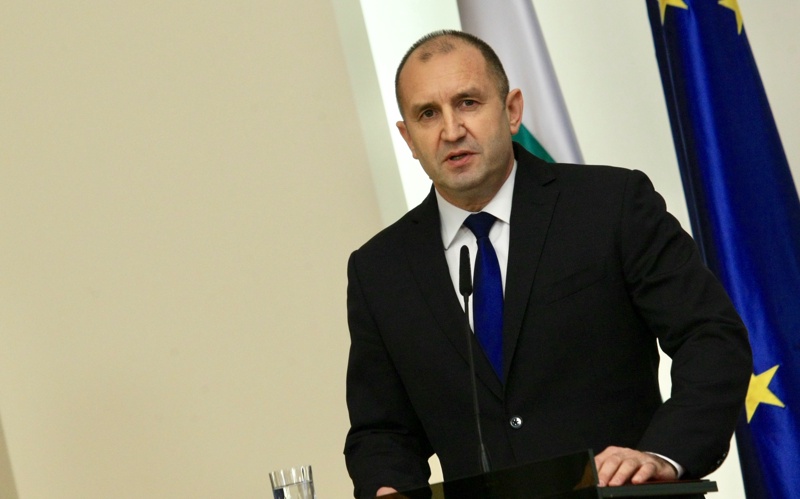
President Roumen Radev announced he will likely veto the controversial amendments to the Elections Act, and pointed to the peculiar and shady way in which the amendments were passed: with a vote in the middle of the night.
“This is an incredibly important piece of legislation; the fundamentals of our democracy depend on it. When I return [from Switzerland, where he is on an official visit] there will be a resolution regarding this matter, but rest asured, it will be in the public’s interest.”, Radev said.
Radev returned to Bulgaria on Friday.
A masked man tried to break into Emilyan Gebrev’s house last November

Arms dealer and manufacturer Emilyan Gebrev, who has been making headlines lately for the similarities between his poisoning in 2015 and that of the double agent Sergey Skripal and his daughter Yulia, reported a masked man tried to break into his home last November.
Just prior he had requested that the investigation into his poisoning be renewed.
Gebrev first informed the supervising prosecutor assigned to his case. The prosecutor answered the information that someone is trying to break into his house does not fall within their jurisdiction. Gebrev then informed the police
The story about the case and the investigation, both of which have gone nowhere in the last four years, emerged in the last weeks after the investigative site Belingcat published investigative reporting on the striking similarities between the poisoning of Gebrev and Sergey and Yulia Skripal. The site also puts one of the main suspects in the Skripal poisoning, Denis Sergeev, a high-ranking Russian intelligence agent, in Bulgaria at the time Gebrev, his son and collegue were poisoned.
The government approves amendments to the Black Sea Special Coast Development Act

The Bulgarian government has approved amendments to the Black Sea Special Coast Development Act, which ban any and all beach accessories on dunes.
After failing incredibly to protect the dunes from large scale development and urbanization undertakings, the government has decided to introduce hard sanctions against people putting up beach umbrellas and towels on the dunes as well as wild campers.
The dunes are protected but are almost never indicated as such. This could lead to a lot of sanctions (of between 1000 and 3000 leva) to people unaware they have violated the regulation.
The controversial amendments were introduced in the midst of yet another wave of shady and aggressive development projects along the coast.
Environmental Minister Neno Dimov to fine Bear Grylls for violating Rila environmental regulations

The Ministry of Environment might fine the Discovery Channel’s series Running Wild featuring Bear Grylls for eating a protected frog and going into the protected lakes in Rila Mountain for an episode of its show.
Bathing in the Rila lakes is forbitten, as is killing animals in the area. Grylls and his partner for this episode Derek Hough are shown to enter one of the Rila lakes as well as eating a frog, which they supposedly caught in the vicinity.
The producers of the show, however, claim that all that they have done was under the supervision and sanction of the local environment authorities. The Ministry of Environment says that the officials have not witnessed the actions which breach the rules in the protected area but will nonetheless investigate the park authorities.
Last year a group of Bulgarian traditional dancers made a clip dancing in one of the lakes as well. They claimed they hadn’t known entering the waters was forbidden and they would comply with whatever the law provides as punishment. The dance group was fined 5000 leva but the fine remains unpaid to this day.
Bulgaria approves North Macedonia accession to NATO

In the absence of the MPs from the largest parliamentary opposition the Bulgarian Socialist Party, the Bulgarian Parliament ratified the resolution to support North Macedonia’s NATO membership bid.
“the moment North Macedonia joins NATO will be historical for the alliance.”, Bulgarian Foreign Minister Ekaterina Zaharieva said.
The speaker of the Parliament of North Macedonian, Talat Xhaferi was present during the voting session.
“After so many years waiting on NATO’s doorstep, NATO has finally become a reality for us”, Xhaferi said.
The leader of the far-right nationalist ATAKA, which is also a coalition partner, Volen Siderov, found the vote to be a good time to express his skepticism of NATO.
“NATO membership is sought as a guarantee for peace and security but against whom? Who is the enemy, plainly put? What is NATO doing in the Balkans and what does it intend to do? Is it preparing military actions and in Europe? I see signs that this is the case.”, Siderov said.
Ключови думи
За честна и независима журналистика
Ще се радваме, ако ни подкрепите, за да може и занапред да разчитате на независима, професионална и честна информационно - аналитична медия.
 0 коментара
0 коментара
Екипът на Mediapool Ви уведомява, че администраторите на форума ще премахват всички мнения, съдържащи нецензурни квалификации, обиди на расова, етническа или верска основа.
Редакцията не носи отговорност за мненията, качени в Mediapool.bg от потребителите.
Коментирането под статии изисква потребителят да спазва правилата за участие във форумите на Mediapool.bg
Прочетете нашите правила за участие във форумите.
За да коментирате, трябва да влезете в профила си. Ако нямате профил, можете да се регистрирате.
